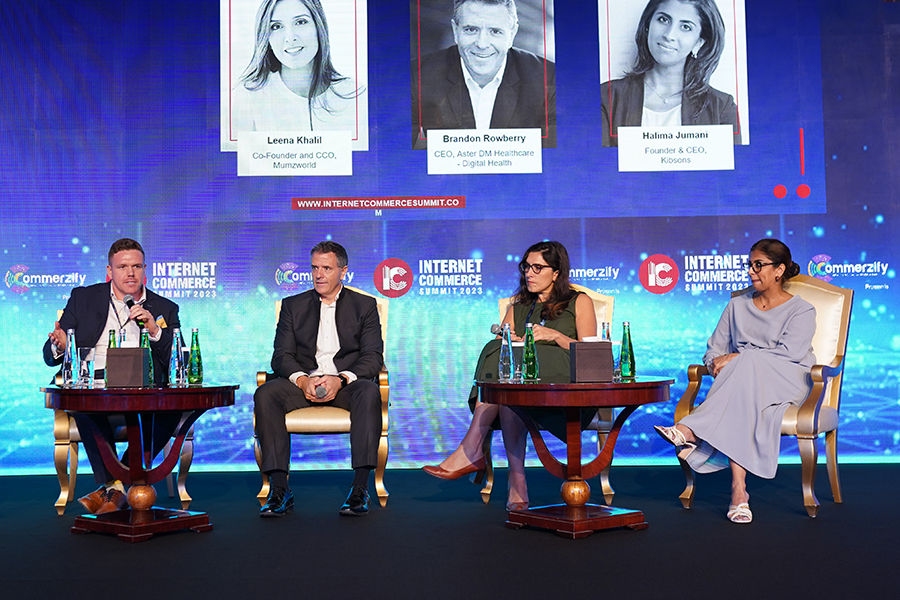
Accelerating the future of e-commerce
How advances in artificial intelligence (AI), cloud computing, robotics, 3D printing, internet of things (IoT), advanced wireless technologies and more is fuelling digital democracy.
The GCC e-commerce market doubled between 2019 and 2022. This growth is set to continue and is expected to double again by 2026-27 with countries such as the UAE and Saudi Arabia leading this growth wave, shared Ben Trainor, Director, PwC.
Meanwhile, by 2023 itself there will be more than 200 million internet users in the region, added Anurima Das, Executive Editor, Images Group Middle East.
Against this background industry leaders including Brandon Rowberry, CEO, Aster DM Healthcare – Digital Health; Halima Jumani, Founder & CEO, Kibsons; and Leena Khalil, Co-founder and CCO, Mumzworld discussed trends and developments expected to dominate the future of e-tail in the region.
Highlighting the importance of having a solution-centric approach, Khalil said, “Our key goal is to always solve every problem that a household with children might have with our 300,000+ products enhanced by a hyper-personalised shopping experience and quick fulfilment.”
Understanding consumer needs, solving their pain points and importantly delivering what they need to their preferred doorsteps are crucial, agreed Jumani. “In doing so, achieving economies of scale to drive profitability is also pivotal. I also think that there will be some meaningful consolidation in this market enhancing the retail experience even further.”
Offering a perspective from the healthcare industry where digitisation efforts are more recent compared to retail, Rowberry shared, “Besides being able to book consultation and pay for it online through insurance integration on our app now patients get to know in advance how much they are going to pay for their treatments. It’s quite like browsing product prices before buying a dress or a smartphone.” Interestingly, 90% of Rowberry’s team is made up of people who don’t come from a healthcare background. “They come with experience ranging from food delivery to other e-commerce businesses because we are benchmarking ourselves with other e-commerce players and not just healthcare providers,” he explained.
At this point, Das asked if alongside innovation customer acquisition and retention are key focus areas too.
“For us customer retention is key for which we constantly seek feedback to improve shopping experience that leads to positive word of mouth,” Jumani responded. “After all, what’s the point of investing in acquiring customers if you can’t retain them?”
“Bilingual content and community are key for us and it’s heartening to see how our community of mothers not only seek information but also share it widely therein driving referrals for us,” Khalil shared.
Connecting the ecosystem of hospitals, clinics, pharmacies, homecare is a big part of Aster’s customer acquisition and retention strategy, Rowberry added.
Another interesting topic of discussion was how can businesses apply AI and data learning to understand consumer behaviour?
“We leveraged data learning to automate our systems. Today 60% of our SKUs are automated in terms of placing purchase orders. Besides cost reduction it’s also driving the metrics of product availability therein reducing shortages and increasing cost efficiency,” Jumani shared.
“Dealing with 300,000 products AI and data learning help us to understand frequency and seasonality of products enabling us to physically manage the flow of goods therein enhancing efficiency, reducing leakage and ultimately increasing savings,” Khalil added.
“In our case such technology pieces help us to support our patients to become more proactive with their health,” Rowberry concluded.